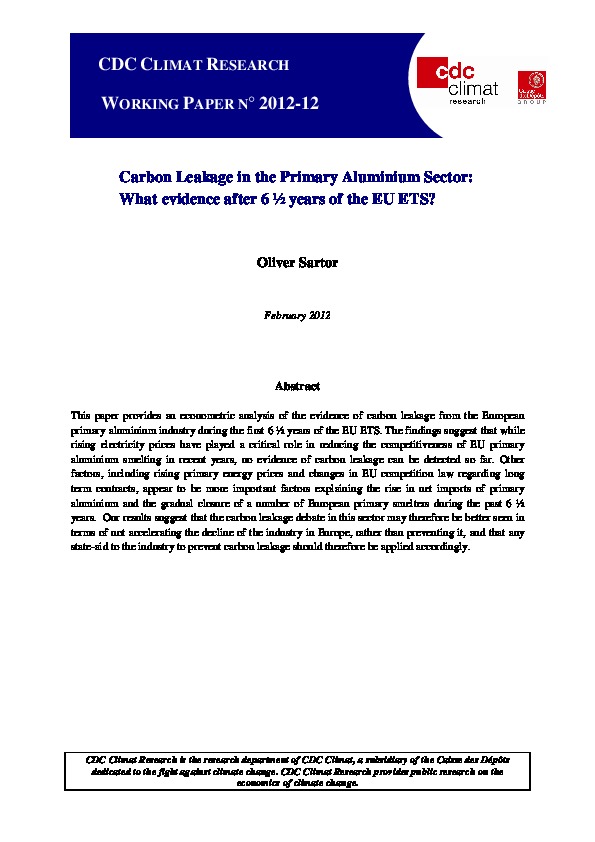Carbon Leakage in the Primary Aluminium Sector: What evidence after 6 ½ years of the EU ETS?
By Oliver Sartor
This paper provides an econometric analysis of the evidence of carbon leakage from the European primary aluminium industry during the first 6 ½ years of the EU ETS. The findings suggest that while rising electricity prices have played a critical role in reducing the competitiveness of EU primary aluminium smelting in recent years, no evidence of carbon leakage can be detected so far. Other factors, including rising primary energy prices and changes in EU competition law regarding long term contracts, appear to be more important factors explaining the rise in net imports of primary aluminium and the gradual closure of a number of European primary smelters during the past 6 ½ years. Our results suggest that the carbon leakage debate in this sector may therefore be better seen in terms of not accelerating the decline of the industry in Europe, rather than preventing it, and that any state-aid to the industry to prevent carbon leakage should therefore be applied accordingly.
